Turkmen Dishes: Basic Overview
Common Ingredients
Common Cooking Methods
Courses
Meals
Key Taste
Eating Etiquette
Meal Presentation
Culinary Festivals
Influence and Fusion
Popular Types of Turkmen Dishes
-
Breads and Doughs
Turkmen breads and doughs are predominantly made from wheat flour and are high in gluten.
They are ideal for vegan and vegetarian diets, with traditional cooking methods including baking in a tandoor oven.
These breads have flat, round shapes with smoky aromas.
-
Cakes and Pastries
Turkmen cakes and pastries range from savory to sweet taste.
They primarily use wheat flour and are not gluten-free.
They often contain meat, like lamb and mutton, or beef.
Commonly baked or deep-fried, these dishes have a crispy texture and are rich in flavor, shaped in forms ranging from triangular to round.
-
Charcuterie and Cheese Boards
Turkmen charcuterie and cheese boards are rich in meats and dairy, with a focus on savory, salty, and sweet tastes.
These dishes are not suitable for vegans or vegetarians, some are gluten-free.
Emphasizing traditional Turkmen culinary methods such as smoking, frying, and fermenting, they are popular as appetizers or part of larger meals.
-
Desserts
Turkmen desserts are creamy, with a subtle sweetness and sourness; some are typically served chilled.
These desserts predominantly use dairy, making them unsuitable for vegans.
However, some of them are vegetarian-friendly and gluten-free.
-
Dry Noodle Dishes
Turkmen dry noodle dishes are made with hand-rolled wheat noodles and meat, typically lamb or beef.
The preparation is simple, boiling the noodles and serving them with cooked meat, with minimal use of spices and herbs.
These dishes are hearty and fulfilling, characterized by chewy noodles and tender meat.
-
Fried Dishes
Turkmen fried dishes are mainly wheat-based and not gluten-free.
They feature a crispy texture from frying in oil and often include meat like lamb or beef, making them unsuitable for vegetarian or vegan diets.
The flavors are predominantly savory with minimal use of spices and herbs.
-
Grilled and Barbecued Dishes
In Turkmen cuisine, grilled and barbecued dishes focus on meat, particularly lamb.
They are marinated with spices, then slowly grilled for a smoky flavor and tender texture.
The emphasis is on rich flavors and traditional cooking methods.
-
Noodle Soups
Turkmen noodle soups feature wheat-based noodles, often hand-pulled or rolled.
They usually contain meat like lamb and mutton, or beef.
The broths are rich, with added spices, herbs, and vegetables such as carrots and onions.
-
Porridge
Turkmen porridge is traditionally made from grains like sorghum, and wheat.
These grains give the porridge a hearty texture and robust flavor.
The cooking methods vary, with some porridges boiled to a soft consistency, while others are thicker.
-
Rice Dishes
Turkmen rice dishes, primarily pilaf, typically use long-grain rice and include meats like lamb, beef, or chicken.
They are gluten-free, often cooked by simmering or steaming, and are flavored with regional spices and herbs.
-
Snacks
Snacks in Turkmen cuisine range from sweet to savory, with varied textures from crispy to soft.
Common preparation methods include baking, slow cooking, and frying.
Shapes are diverse, including triangular and round, with dairy frequently used.
Most of them are suitable for vegetarian and gluten-free diets.
Turkmen Dishes: Signature Culinary Delights
-
Most Popular Dishes
Turkmen cuisine, with its rich and diverse flavors, is a true reflection of the country’s culinary heritage.
These dishes are staples in Turkmen households for their unique taste and preparation methods.
-
National Dish
Ichlekli, also known as Içlekli or Ishlekli, is recognized as the national dish of Turkmenistan.
Traditionally, Ichlekli was baked by being buried in hot sand and embers, a technique that reflected the nomadic lifestyle of the Turkmen people.
-
Traditional Dishes
Turkmen cuisine features hearty and savory flavors, focusing on meat (mainly lamb and beef) and wheat-based ingredients.
The dishes often use moderate spices to enhance natural flavors and include various forms of wheat like bread, dumplings, and noodles.
Traditional cooking methods such as boiling, baking, and frying.
-
Street Food Dishes
Turkmen street food is characterized by its rich and hearty flavors.
They predominantly feature lamb and other meats prepared using traditional methods like tandoor cooking.
This imparts a unique smokiness and tenderness. Breads and pastries, often tandoor-baked, are also central to these dishes.
Breads and pastries, often tandoor-baked, are also central to these dishes.
-
Exotic Dishes
This concept in Turkmen cuisine involves using unique ingredients, cooking methods, and flavor combinations uncommon in other cuisines, offering a distinctive experience for those new to Turkmen food.
-
Fusion Dishes
Turkmen fusion cuisine is a direct reflection of its diverse cultural influences, primarily drawing from Iran, Russia, Turkey, Uzbekistan, and Afghanistan.
Turkmen dishes are culinary creations made by the locals of Turkmenistan. Often, the dishes are associated with the semi-nomadic way of life of the population.
In Turkmenistan, meat is a common part of a meal, with protein options typically including mutton and lamb, but are not limited to these. Camel, chicken, and gazelle also frequently grace the dining table.
Beef is less common, and horse meat is barely consumed in Turkmenistan since the animal has a great cultural connection with locals.
Ideally, these meat choices are boiled, grilled, or incorporated into stews. When served, many Turkmen specialties are compatible with various bread types, especially nan.
Apart from meat-based specialties, Turkmen locals also have steamed dumplings in the form of manti, usually available at marketplaces (bazaars) and restaurants.
Furthermore, Turkmenistan dishes involve few spices, with salt and black pepper being common picks. Additionally, cottonseed oil is heavily used in many dishes.
Interestingly, Ichlekli is widely considered the national dish of Turkmenistan by locals.
To fully comprehend Turkmen dishes, I’ll uncover the factors that affect Turkmen’s culinary options. Then, let’s get to know some of the cooking equipment used by the locals.
Additionally, it’s important to discover the customs and culture when dining in Turkmenistan and some short questions with their answers relating to the country’s dishes.
Are you ready to get to know more about Turkmen dishes? Interact with the images of the dish to know more information about it, or use the filter to get ideas that satisfy your curiosity.
34 Most Popular Turkmen Dishes with Filters
#1
in Turkmenistan
#2
in Turkmenistan
#3
in Turkmenistan
#4
in Turkmenistan
#5
in Turkmenistan
#6
in Turkmenistan
#7
in Turkmenistan
#8
in Turkmenistan
#9
in Turkmenistan
#10
in Turkmenistan
#11
in Turkmenistan
#12
in Turkmenistan
#13
in Turkmenistan
#14
in Turkmenistan
#15
in Turkmenistan
#16
in Turkmenistan
#17
in Turkmenistan
#18
in Turkmenistan
#19
in Turkmenistan
#20
in Turkmenistan
#21
in Turkmenistan
#22
in Turkmenistan
#23
in Turkmenistan
#24
in Turkmenistan
#25
in Turkmenistan
#26
in Turkmenistan
#27
in Turkmenistan
#28
in Turkmenistan
#29
in Turkmenistan
#30
in Turkmenistan
#31
in Turkmenistan
#32
in Turkmenistan
#33
in Turkmenistan
#34
in Turkmenistan
Turkmen Dish Images
What Factors Impact Turkmen Dishes?
Turkmen dishes are a combination of the past nomadic traditions with other ethnic minority cultures. However, there are more than just the people factors with suggestions like:
Nomadic Heritage
The Turkmen people were nomads, and this lifestyle greatly influenced their cuisine. Nomadic diets relied heavily on meat (especially lamb and goat) and dairy products, as these were readily available from their herds.
Geographical Location
As a Central Asian country, an arid and semi-arid climate has shaped its agricultural practices. Therefore, this affects the ingredients that are commonly used in Turkmen cooking, such as grains (wheat and barley) and vegetables.
Limited Use of Spices
Turkmen cuisine is not known for its heavy use of spices. The flavor of the food is often derived from the primary ingredients themselves.
Religious Influences
The majority of Turkmen are Muslim, and Islamic dietary laws influence the cuisine. For example, pork is generally avoided, and halal practices are observed closely.
Once you’ve discovered the features that impacted the dishes of Turkmenistan, venture further to discover the utilities that locals use for making these specialties.
What Are Traditional Turkmen Cooking Utensils?
The people of Turkmenistan have various utensils for cooking dishes. Here are some of the most iconic options:
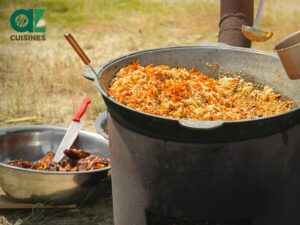
Kazan
Kazan is a big metal cauldron used for a variety of dishes, from boiling meats to preparing stews and soups. The kazan is versatile and can be used over an open fire, which was essential for the nomadic lifestyle.
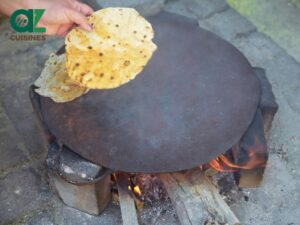
Saj
Saj is a type of flat metal or iron griddle used over an open flame. It’s employed for baking flatbreads, frying meat, and cooking various other dishes.
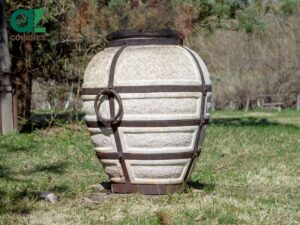
Tandyr
Often known as a tandoor oven, a tandyr is a clay oven used for baking bread and cooking certain types of meat.
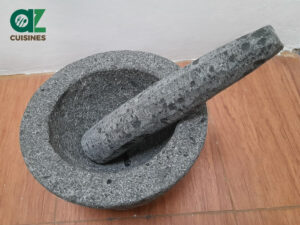
Mortar And Pestle
The combo of mortar and pestle is used for grinding spices and herbs. They are essential for preparing fresh spice mixes and pastes.
Once you’ve learned about the types of equipment employed in cooking, immerse fully into Turkmen cultures and customs to fully comprehend these dishes.
What Are Turkmen’s Dining Customs and Culture?
These are some customs and cultures to pay attention to when dining in Turkmenistan:
Bread’s Cultural Significance
In Turkmen culture, bread, particularly flatbread, holds a place of high respect. It is often the centerpiece of the meal and is torn by hand.
Hospitality
Hospitality is a cornerstone of Turkmen culture. Guests are treated with the utmost respect and are offered the best food available.
It is common for hosts to prepare an abundant amount of food, more than can be eaten, to demonstrate their generosity. Refusing food can be considered impolite, as it may imply a rejection of the host’s hospitality.
Respect for Elders and Traditions
Meals are often communal, and there is a strong emphasis on respecting elders. The oldest person present may be offered the first bite or may initiate the start of the meal.
Traditional customs, such as saying a prayer or a blessing before eating, are common practices passed down through generations.
Special Occasions
Food plays a significant role in Turkmen celebrations and ceremonies. Special dishes are prepared for occasions like weddings, religious holidays, and national festivals.
Don’t leave just yet, as there is more to discover about Turkmen dishes through some of the concerns of other readers.


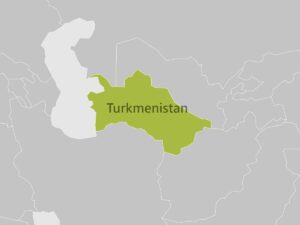
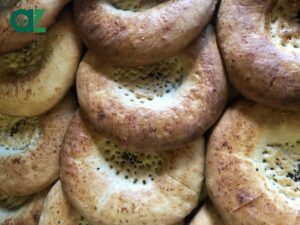
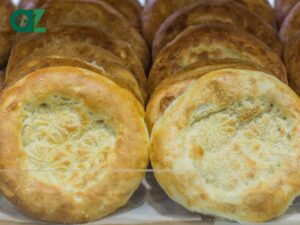
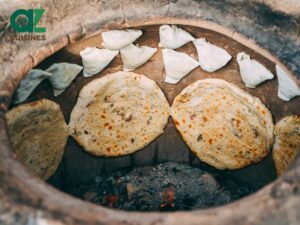
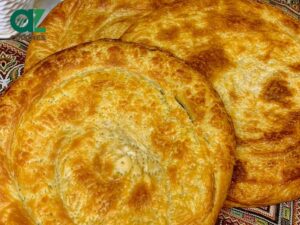
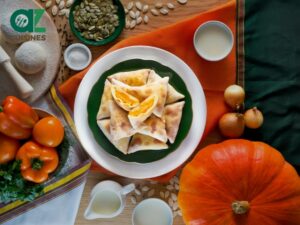
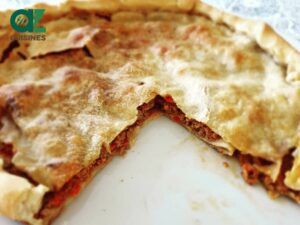
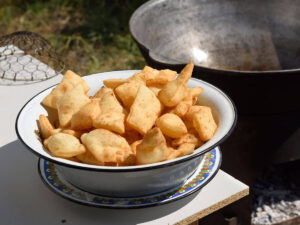
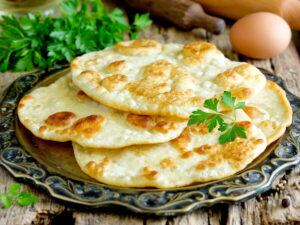
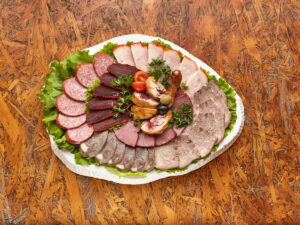
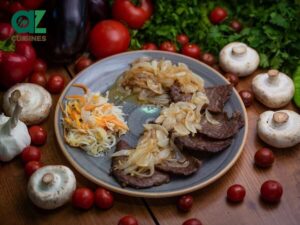
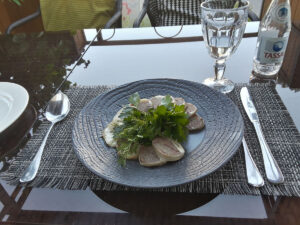
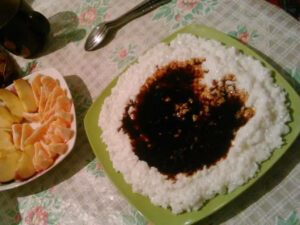
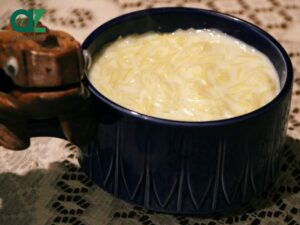
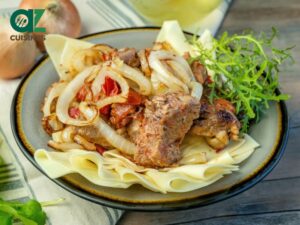
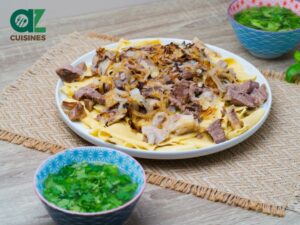
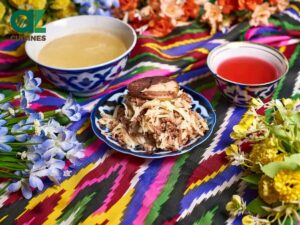
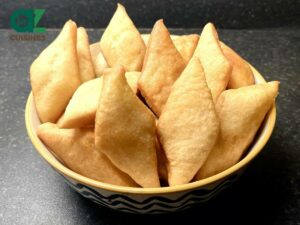
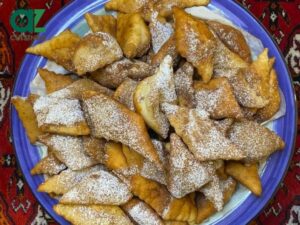
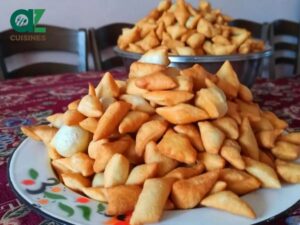
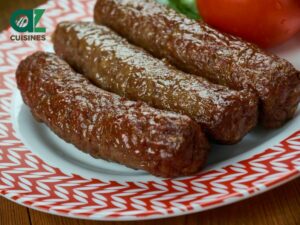
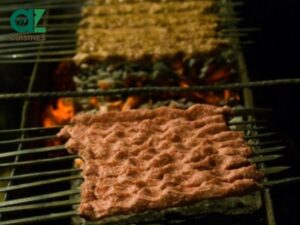
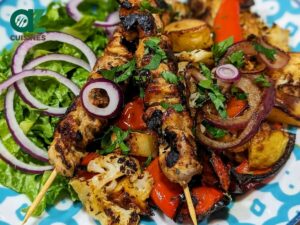
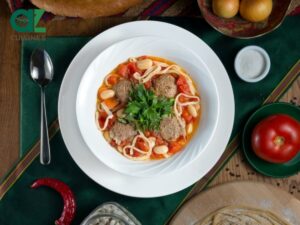
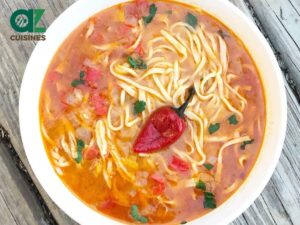
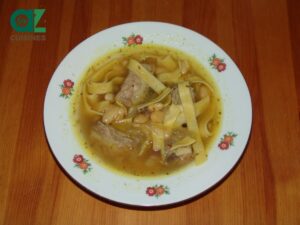
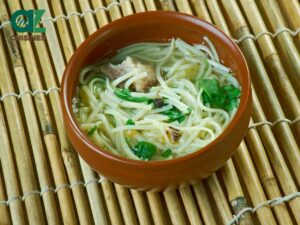
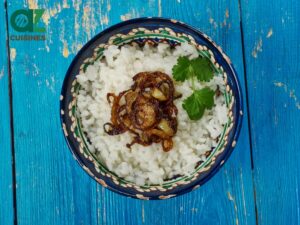
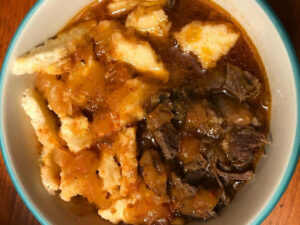
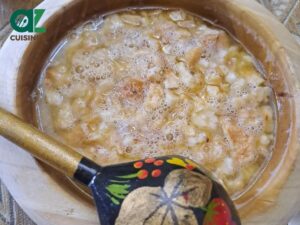
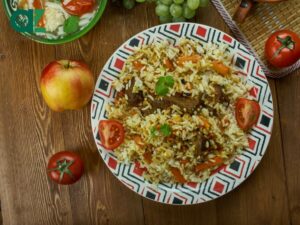
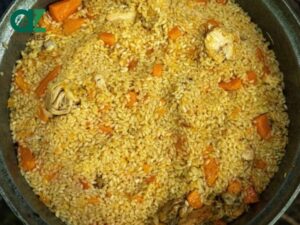
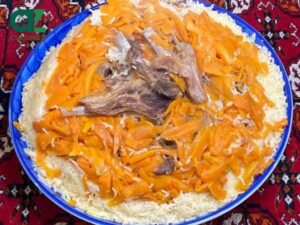
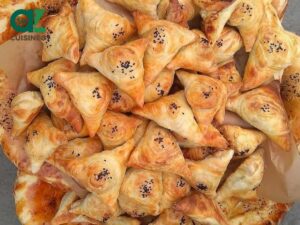
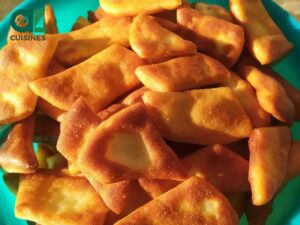
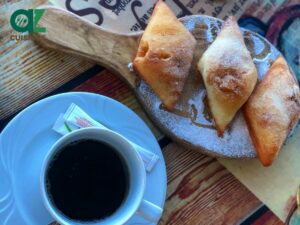
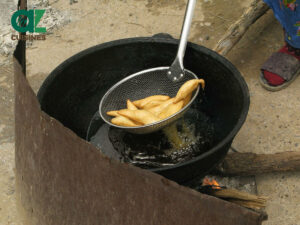
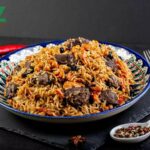
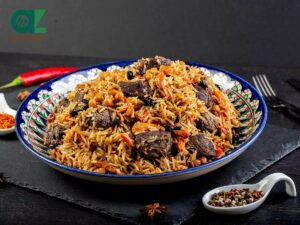
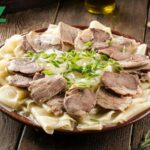
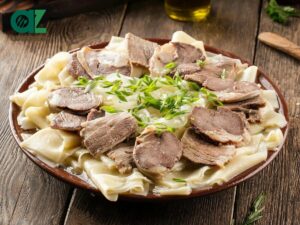
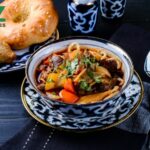
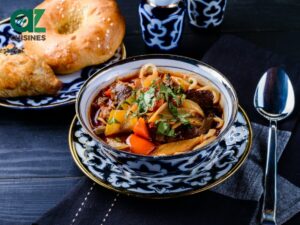
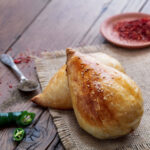
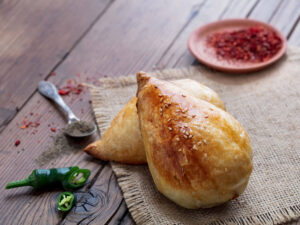
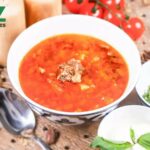
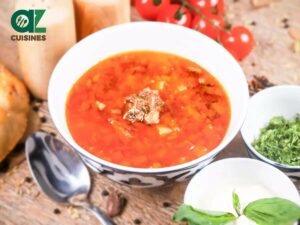
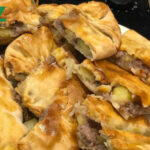
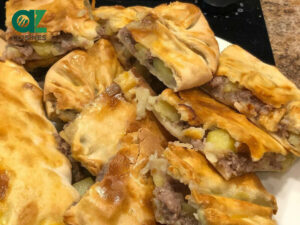
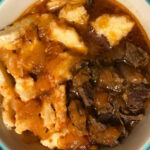
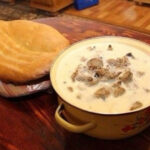
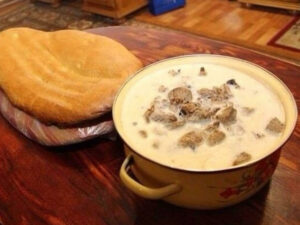
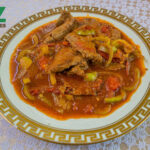
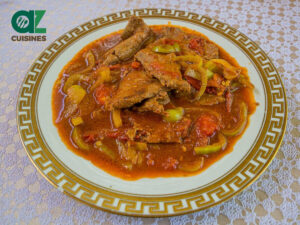
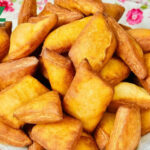
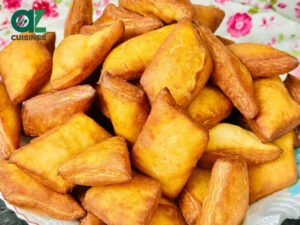
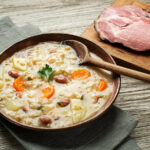
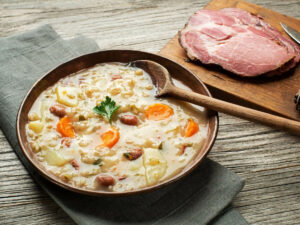
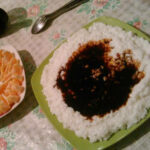
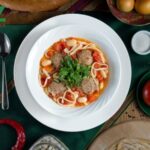
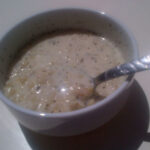
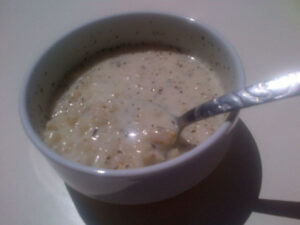


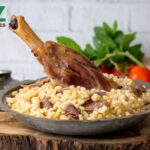
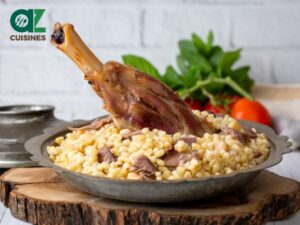
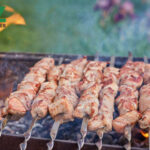
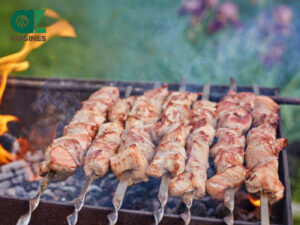
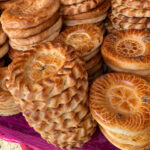
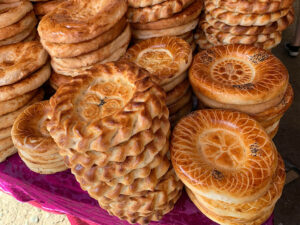
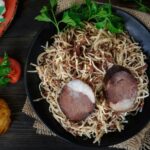
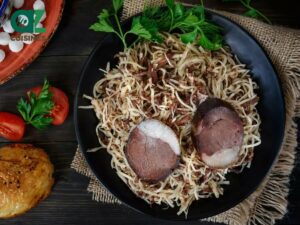
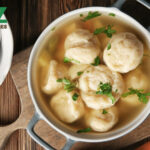
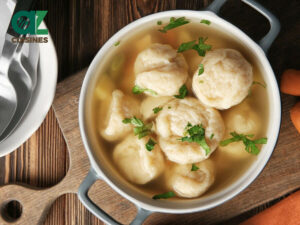
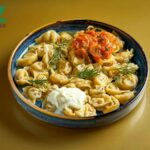
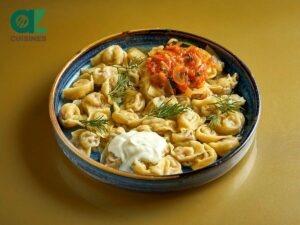
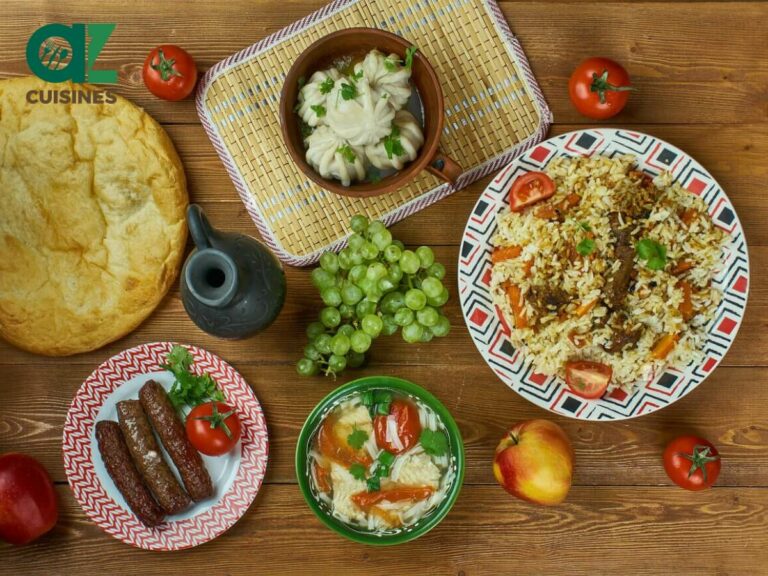
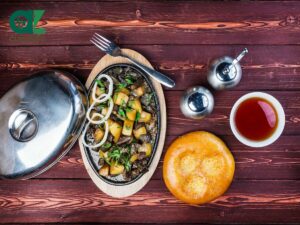
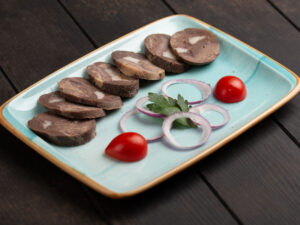
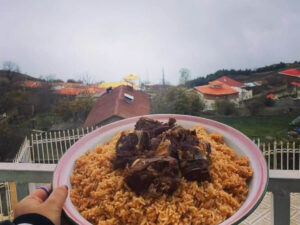
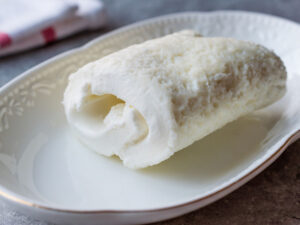
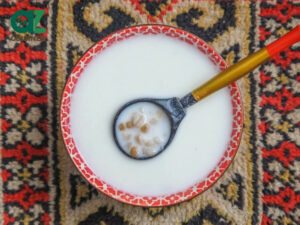
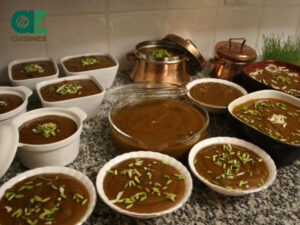
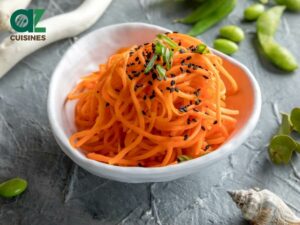
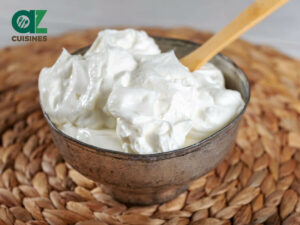
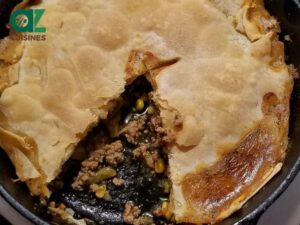
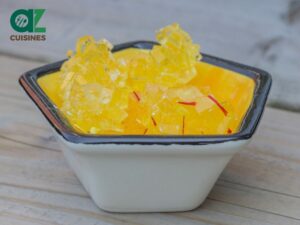
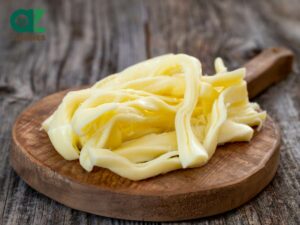
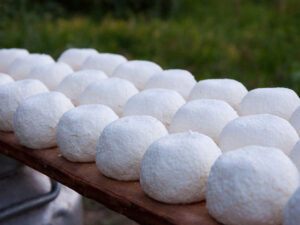
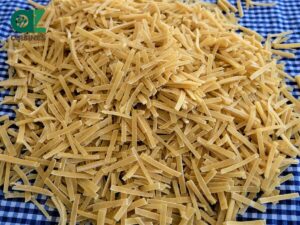
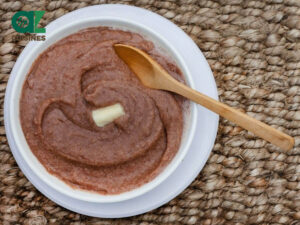
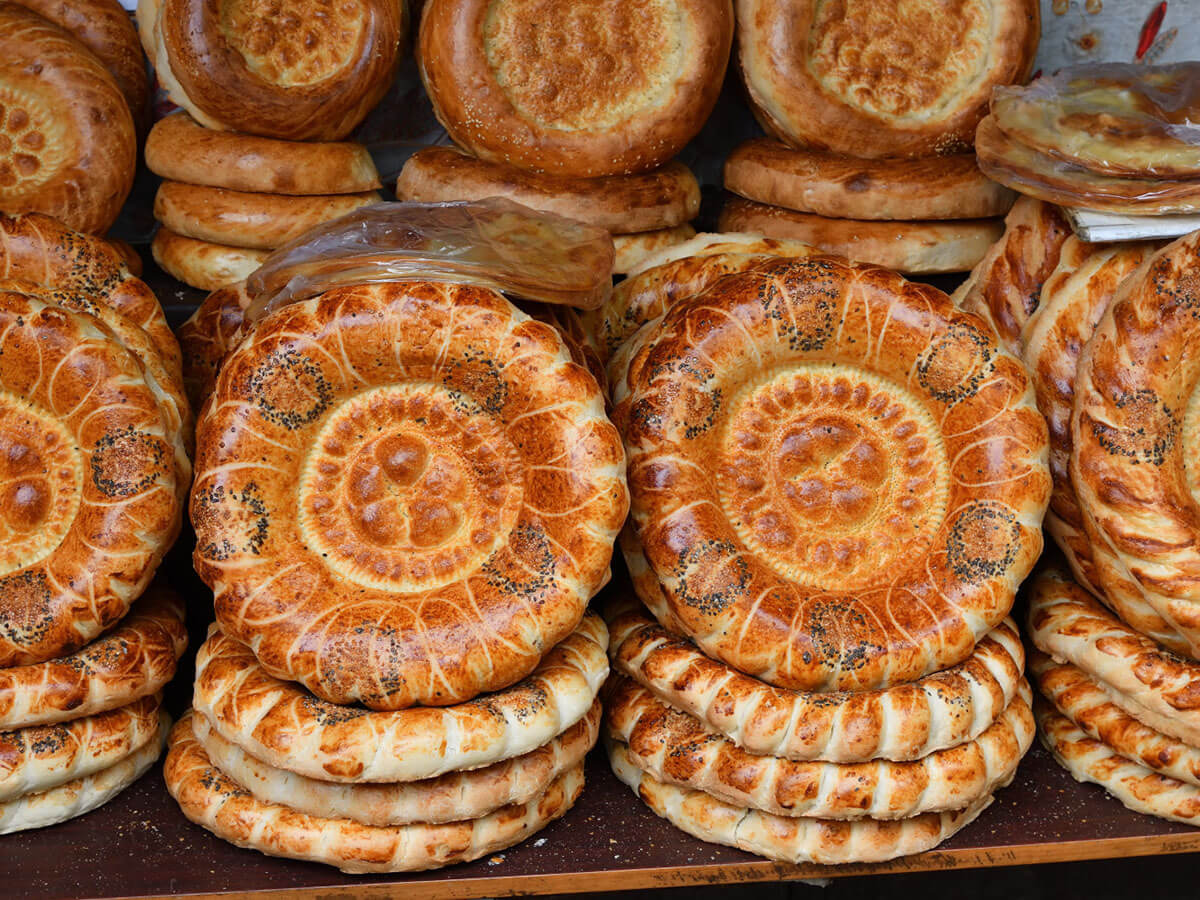
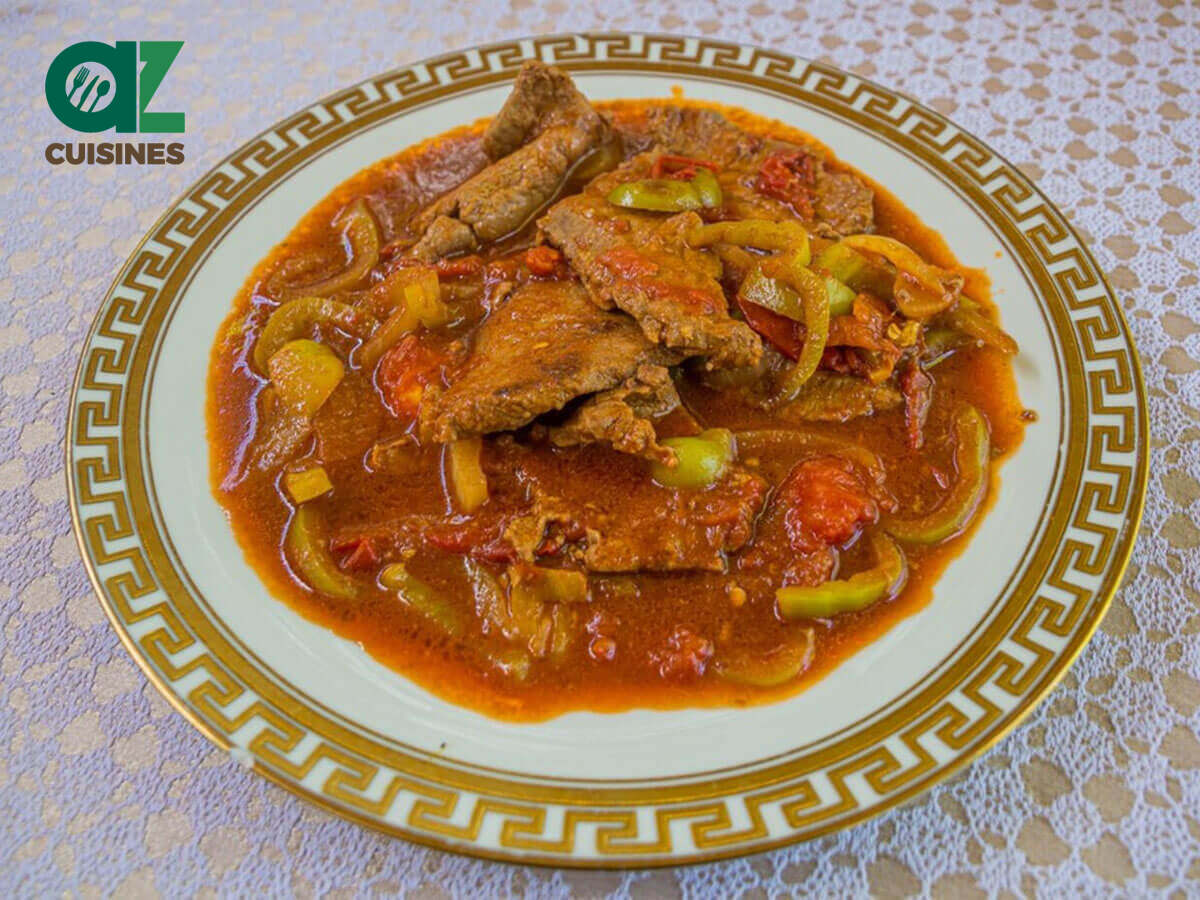
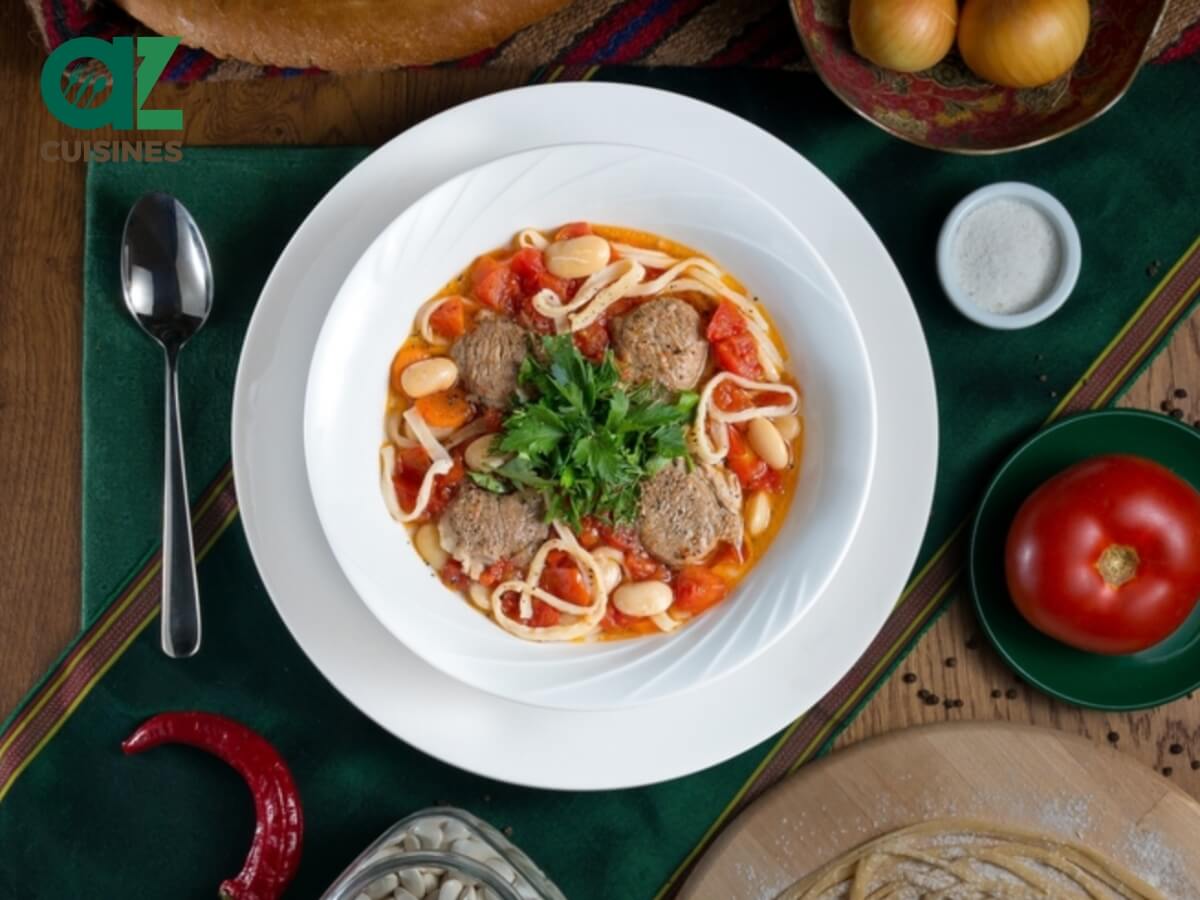
Adam Sam
Senior Food and Drink Editor
Expertise
Food Writer & Recipe Developer, Recipe Tester, Bartender, Cooking-video Maker, Editor In Chief
Education
Adam Sam, an experienced food writer and recipe developer, is passionate about blending diverse culinary traditions, national dishes, and innovative beverages, showcasing his proficiency in both traditional and modern recipe testing.
As the Editor-in-Chief, he elevates culinary content from street food to fine dining, focusing on Western cuisine and types of drinks at azcuisines.com, and is professional in creating engaging cooking videos that simplify complex dishes and ingredients.
His passion for food is evident in his writing, where he uniquely merges various cultures, traditions, and contemporary trends, skillfully combining classic recipes with modern cooking methods.